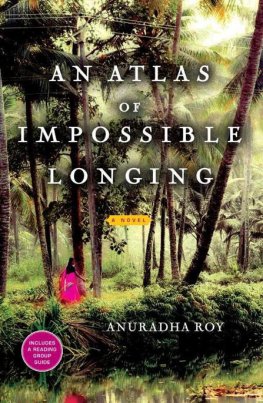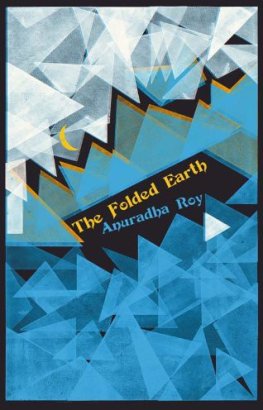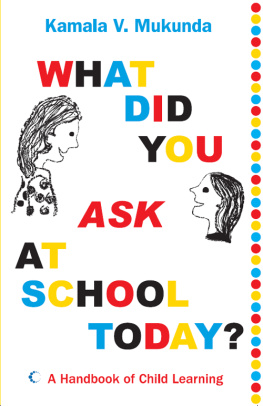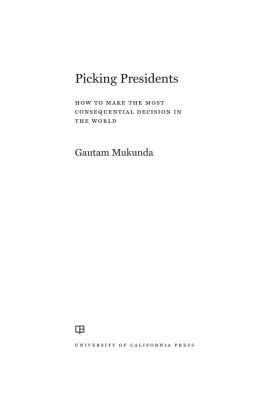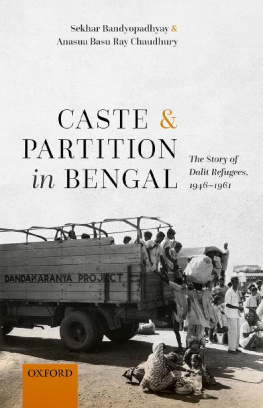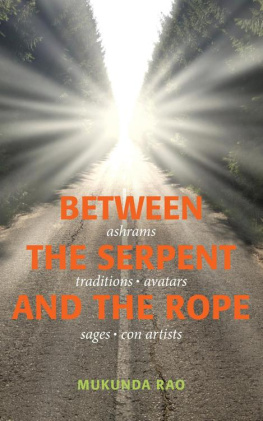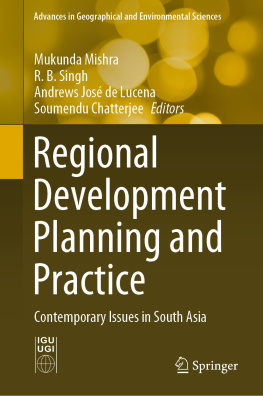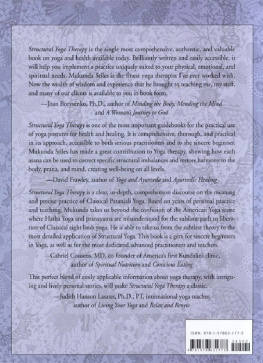Anuradha Roy
An Atlas of Impossible Longing
CAST OF CHARACTERS AT DULGANJ ROAD, SONGARH
Amulya:
An austere, learned man who has abandoned Calcutta for a tiny town and has established a herbal potions and pills factory there
Kananbala:
His wife, also from Calcutta
Kamal:
Amulyas older son, his second in command at the factory
Manjula:
Kamals wife
Nirmal:
Amulyas younger son, an archaeologist, a wanderer
Bakul:
Nirmals daughter
Mukunda:
An orphan boy whom Amulya decides to take into the family
Meera:
A distant relative, a young widow who lives with the family primarily to take care of Bakul
Larissa Barnum:
An Anglo-Indian woman who lives across the road
Digby Barnum:
Larissas husband, the British manager of the mines that fringe the town
Tommy:
A young Anglo-Indian man, a relative of Larissas who comes visiting
Khansama:
The Barnums cook
Gouranga:
A servant in the household of Amulya and Kananbala
IN MANOHARPUR
Bikash Babu:
An elderly eccentric who lives in a once-grand riverside mansion in rural Bengal
Shanti:
His daughter, who becomes Nirmals wife
Kripa:
An old retainer in their household
Ashwin Mullick and Potol Babu:
Neighbours and friends of Bikash Babu
IN CALCUTTA
Suleiman Chacha:
A teacher of history who gives Mukunda shelter when he needs it
Farhana:
His wife, known as Chachi
Noorie:
Their beloved parrot
Malini:
Mukundas wife
Barababu:
Malinis father
Goutam:
Mukunda and Malinis baby son
Aangti Babu:
Mukundas employer, an unscrupulous builder
Harold and Bhim:
Aangti Babus thugs for hire
The house in the picture is afloat on a river the innocuous colour of darkening sepia.
The house is a folly, a Roman-looking affair with tapering pillars soaring to its arched roof. Palm trees at its sides tousle the sky, leaning close and tall. Watery eddies frozen at the click of a shutter lick the pillars of its long verandah.
The river has been shifting and turning, spurning its ancient course, hungry for new soil. For years the little town they call it a town, but it is only two or three brick houses and then fields and thatched huts for as long as anyone remembers, the town has watched and joked about the indecisive river. Now they can see that the river is a little more daring each monsoon in its progress towards the house, claiming a foot, not the unintrusive inch any more. In my photograph it is still far away, held back by the wall of the ghat, lapping at the slimy stone the women stepped onto going for a wash.
Then the brown river in the picture begins to rise and the steps to the house become river and the verandah too becomes river. It rises until the verandahs windows open into water. I see people swimming behind the submerged windows, imprisoned by the drowned rooms as if in some abandoned Atlantis. I watch the palm trees come crashing down through the ornate roof. As the house dissolves, the flowering bakul tree on the left side of the picture flows boat-like into the water on a journey without end.
PART I. THE DROWNED HOUSE
In the warm glow of fires that lit the clearing at the centre of straw-roofed mud huts, palm-leaf cups of toddy flew from hand to hand. Men in loincloths and women in saris had begun to dance barefoot, kicking up dust. Smoke curled from cooking fires and tobacco. The drums, the monotonous twanging of a stringed instrument, and loud singing obliterated the sounds of the forest.
A man with a thin, frown-creviced face topped by dark hair combed back from his high forehead sat as still as a stone image in their midst, in a chair that still had its arms but had lost its backrest. His long nose struck out, arrow-like, beneath deep-set eyes. He had smoked a pipe all evening and held one polite leaf cup of toddy that he had only pretended to sip. His kurta and dhoti were an austere white, his waistcoat a lawyerly black.
He did not appear to hear the singing. But his eyes were on the dancers: wasnt that girl in the red sari the one who had come with baskets of wild hibiscus that she had flung carelessly into a corner of his factory floor? And that man who was dancing with his arm around her waist, wasnt he one of the honey-collectors? It was hard to tell, with their new saris and dhotis, the flowers in their hair, the beads flying out from necks, the firelight. The man leaned forward, trying to tell which of the sweat-gleaming faces he had encountered before in his small workforce.
The brown-suited, toadlike figure sitting on a stool next to him nudged him in the ribs. Something about these tribal girls, eh, Amulya Babu? Makes long-married men think unholy thoughts! And do you know, theyll sleep with any number of men they like! He emptied his cup of toddy into his mouth and licked his lips, saying, Strong stuff! I should sell it in my shop!
A bare-chested villager refilled the cup, saying, Come and dance with us, Cowasjee Sahib! And Amulya Babu, you are not drinking at all! This is the first time people from outside the jungle have come as guests to our harvest festival. And because I insisted. I said, its Cowasjee Sahib and Amulya Babu who give us our roti and salt! We must repay them in our humble way!
A tall, hard-muscled man stood nearby, listening, lips curling with contempt as his relative hovered over the four or five friends Cowasjee had brought with him, radiating obeisance as he refilled their cups. Beyond the pool of firelight, cooking smells, and noise, the forest darkened into shadows. Somewhere, a buffalo let out a mournful, strangled bellow. The drums gathered pace, the girls linked their arms behind each others waists, swaying to the rhythm, and the men began to sing:
A young girl with a waist so slender that
I can put my finger around it,
Is going down to the well for water.
With swaying hips she goes.
My life yearns with desire.
My bed is painted red.
Red are my blankets.
For these four months of rain and happiness
Stay, stay with me.
Without you I cannot eat,
Without you I cannot drink.
Ill find no joy in anything.
So stay, stay, for the months of rain,
And for happiness with me.
One of the girls in the line of dancers separated herself from her partners. She had noticed Amulyas preoccupied expression, wondered how a man could remain unmoved by the music, not drink their wine. She came forward with a smile, her beads and bangles jingling, her bare shoulders gleaming in the firelight, orange sari wrapped tight over her young body. The toddy made her head spin a little when she bent down to Amulya. As he tried to scramble away, she stroked his cheek and said, Poor babuji, are you too pining for someone? She leaned closer and whispered into his ear, Wont you come and dance? It wipes sorrows away.

